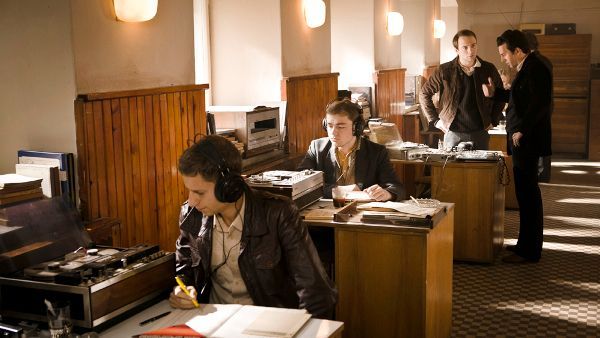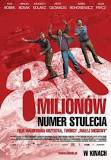Eye For Film >> Movies >> 80 Million (2011) Film Review
80 Million
Reviewed by: Jennie Kermode

It's 1981, just before the imposition of martial law, and the Polish authorities are clamping down on trade union activists. They plan to freeze the funds of Solidarity in order to cripple a growing opposition movement. When they receive word of this, five ordinary union workers come up with a daring scheme. Can they steal 80 million zloty from themselves before it's too late?
It's a risky business. They have no special skills or training. They are all watched continually by the secret police. They don't know who they can trust. There is no way to pull off the theft without their identities being revealed. They'll then have to successfully hide the money and keep their enemies from tracking it down.

In a grim Wroclaw where poverty is evident everywhere and the concrete buildings are caked with grimy snow, our heroes set to work. There's no glamour here, no fancy camerawork, nothing to relieve that atmosphere of oppression. Transport means small, unreliable cars or state-run buses. Only the police have guns. But something else is going on. The mood of the country is beginning to turn. Everywhere, strangers are willing to undertake small acts to thwart officialdom, whether it's obstructing someone in the street or hesitating to pick up the phone. Whilst few want to put themselves in danger, almost everybody wants change. Something big is happening, even if it will take another eight years to come to fruition, and this atmosphere adds a greater sense of urgency to things - all these people are to some extent depending on the theft being successful.
Though 80 Million may lack the wit and style of most bank robbery films, the awareness that this is a true story makes it differently gripping. Patient, observational, it generates tension from small glances and elicits sympathy wih its depiction of everyday lives, which by contrast make the scale of the scheme awe-inspiring. In a pivotal scene, the thieves discover that they haven't brought enough bags for all the cash - they literally couldn't imagine that much money. The agents set on their tail are human too, perhaps a bit too cartoonishly bumbling but more interesting for their flaws because of the invitation this extends to viewers to identify with them - to realis, perhaps, how easy it could be to end up on the wrong side.
The film's greatest weakness is its denoument, which undercuts the thoughtful work that has gone before by letting its curiously immature villain make a classic error. Even if this is true to life, it sits uneasily within the narrative and also serves to rob the film of any political or philosophical scrutiny. Nonetheless, this is an interesting venture for an national industry relatively new to the genre. It will have strong appeal for patriotic Poles and it has enough going on to satisfy a wider audience.
Reviewed on: 29 Jan 2013















